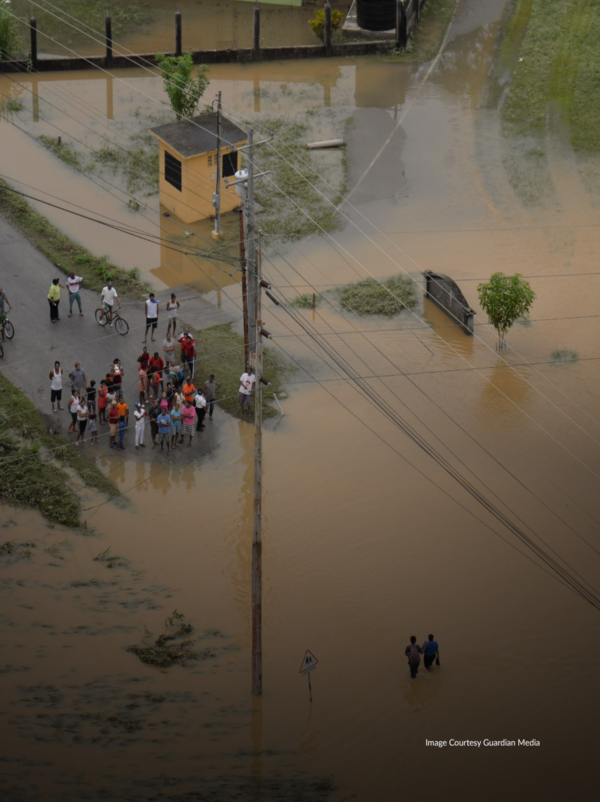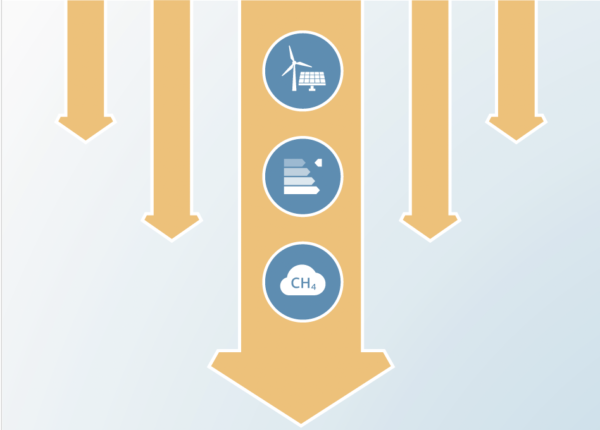
Throughout 2022, we continued to publish our work in high quality, peer-reviewed journals and participated in many high-level events, speaking and influencing the discussion on key climate issues.
Climate science came to the fore in 2022, as the IPCC reported on its sixth assessment cycle (AR6). Our scientists fed into the IPCC process, setting out what 1.5°C means for the transition away from coal and gas. We also played a key role interpreting IPCC findings to provide state-of-the-art support to climate vulnerable countries in the negotiating rooms.
Elsewhere on impacts, adaptation and vulnerabilities, we contributed cutting-edge impact science to the third edition of the Climate Vulnerability Monitor and worked on enhancing shorter-range climate projections under our CONSTRAIN project to support adaptation and resilience planning. Our Down2Earth project looked into future risks from water scarcity and food insecurity in the Horn of Africa, and our scientists pioneered methods for understanding the fingerprints of emissions on our climate, including extreme hurricane activity in the Atlantic exacerbated by ocean warming.
As part of the PROVIDE project, we launched a beta version of the Climate Risk Dashboard, a tool which shows climate impacts according to different warming scenarios. The 1.5°C national pathways explorer, which scales global decarbonisation pathways down to the national level for 60+ countries, secured further funds for the next three years. Work also continued on the Climate Impact Explorer which shows projections for future climate impacts at different warming levels and for several policy-relevant greenhouse gas emission scenarios. The tool is used by central banks and others in the Network for Greening the Financial System to assess financial risk.
Throughout the year, Russia’s illegal invasion of Ukraine threatened to derail global climate action, triggering an energy crisis and new dash for gas. Our policy team led the Climate Action Tracker’s analysis on this excessive gas expansion, which was published at COP27 and widely covered by the media.
Also for the Cairo COP, the team produced a targeted analysis on the pitfalls inherent in new gas investments in Africa and why renewables offer the best path forward for sustainable development and overcoming energy poverty. This built on work published earlier in the year on 1.5°C compatible targets and renewables benchmarks for eight African countries to help guide policy and international finance.
During the Bonn climate talks, our report Fossil gas: a bridge to nowhere questioned if gas has a place in the power sector’s energy transition. The report set deadlines for ending gas power in developed countries by 2035 and developing countries by 2045.
Although the energy crisis sadly stalled progress on a fossil fuel phase out, 2022 will be remembered for the landmark agreement to establish a loss and damage fund. Our diplomacy team contributed to this hardfought win at COP27, which has been a long-standing, core goal of the Small Island Developing States (SIDS) and Least Developed Countries (LDCs) which we support both in the negotiations and in implementing their climate agendas at home.
The diplomacy team’s deep experience working with SIDS and LDCs, underpinned by our science and policy analysis, was critical in navigating the challenging geo-political dynamics in 2022, which saw only muted progress on priority issues including keeping 1.5°C within reach and securing the delivery of climate finance promises.
At the national level, our implementation strategies team worked closely with the NDC Partnership and the Green Climate Fund via our regional offices to support governments in developing their climate strategies and plans.
Our regional offices bring our science and policy expertise to bear on topics of importance to their regions. Climate Analytics Caribbean, which held its official launch in 2022, contributed to the climate justice conversation in the region via the Climate Governance Initiative for the Caribbean.
Climate Analytics Australia and Pacific, which produces energy analysis on 1.5°C compatible decarbonisation in Australia and Asia, provided key inputs to the Australian Government’s Safeguard Mechanism and other policy processes. In the Pacific, the office collaborated with the Secretariat of the Pacific Regional Environment Programme (SPREP) on adaptation and loss and damage projects.
Our relationship with UN missions and agencies is coordinated by our North America office, located in New York. Our CEO Bill Hare's appointment to join the Secretary General’s High-Level Expert Group on the Net-Zero Emissions Commitments of Non-State Entities in 2022 is evidence of our successful engagement with the UN. The group was tasked with setting strong, clear standards on net zero commitments for businesses, investors, cities and regions and published its findings at the end of the year.
Climate Analytics Africa supports sub-Saharan countries in establishing an enabling environment for mobilising climate finance and implementing NDCs. Last year, two countries received support developing their long-term low carbon strategies. Technical support was also provided to municipalities to establish climate action plans and develop fundable projects.
Our South Asia office collaborated with regional organisations such as ICIMOD on topics of importance to the region, including loss and damage. When devastating floods struck Pakistan, our in country expert Dr Fahad Saeed highlighted the role of climate change in international media, including the New York Times and BBC Newsnight.











